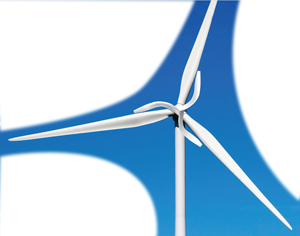Federal Natural Resources Minister Seamus O'Regan announced ten winners of the Breakthrough Energy Solutions Canada initiative February 12 — a public–private initiative in Canada aimed at accelerating the development of clean energy technologies with the potential to substantially reduce global greenhouse gas emissions.
 Each of the winners could receive up to $3 million to develop their clean energy technologies with an opportunity to gain access to additional private investments from Breakthrough Energy Ventures, the Business Development Bank of Canada and others. The winners are:
Each of the winners could receive up to $3 million to develop their clean energy technologies with an opportunity to gain access to additional private investments from Breakthrough Energy Ventures, the Business Development Bank of Canada and others. The winners are:
The announcement followed a forum on January 14 at which 22 finalists from across Canada pitched their clean energy technology ideas and solutions to significantly reduce GHG emissions.
Funding winners in the electric power field were:
• Biome Renewables, Toronto
 The PowerCone® is a passive aerodynamic enhancement technology that bolts to the center of a wind turbine and increases the energy production while reducing loads and noise by industry leading proportions. With no moving parts, it co-rotates with the main rotor blades and is claimed to represent the biggest fundamental change to wind turbine design since the dawn of the three-bladed concept.
The PowerCone® is a passive aerodynamic enhancement technology that bolts to the center of a wind turbine and increases the energy production while reducing loads and noise by industry leading proportions. With no moving parts, it co-rotates with the main rotor blades and is claimed to represent the biggest fundamental change to wind turbine design since the dawn of the three-bladed concept.
The fundamental impact of the PowerCone® is to increase the incremental clean energy output from existing wind turbines, while enhancing reliability through decreased operations and maintenance costs, and reducing noise emissions, decreasing their environmental impact. The project will place Canada on the wind technology map, the company says. It expects to become the first Canadian OEM in the field and take such a position in the global wind industry, creating wide and long lasting economic impacts for Canada.
The PowerCone® has a magnified impact in lower overall wind levels, due to the effect of the power curve shifts. The impact of the PowerCone® when wind speeds are between 5-6 m/s could increase a turbine’s output by as much as 50%, dramatically reducing GHG emissions.
• e-ZN
e-Zn is a Toronto-based energy storage company with a breakthrough technology that “metallizes energy” – storing energy in physically free zinc metal. Claimed as an ultra-low-cost and long-duration energy storage solution, it provides a platform for the world’s energy markets to be 100% supplied by renewable energy. e-Zn says its technology can provide energy storage that is much less expensive than current incumbents, such as lithium-ion, can deliver energy for multiple days, is fire resistant, and is completely recyclable/reusable.
e-Zn’s technology consists of an electrochemical cell that enables the storage of energy in low-cost zinc metal. By decoupling power from energy, e-Zn says it can design systems tailored to the needs of a particular market application. By using zinc metal as an “energy carrier”, e-Zn believes it will provide energy storage more economically than any other technology on the market. Moreover, given that e-Zn uses a cell-based system, the company can combine cells to suit different scales, deploying systems ranging from residential (kW) to utility/grid-scale (MW).
• GBatteries in Ottawa
GBatteries positions itself as an advanced battery technology company on a mission to charge electric vehicles as fast as it takes to fill a tank of gas. Operating at the intersection of artificial intelligence, electrochemistry, and high-power electronics, the company says it has “the only demonstrated technology capable of ultra-fast charging lithium-ion batteries without compromising battery lifespan or changing the chemistry.”
GBatteries has developed an “ultra-fast,” pulse charging method for lithium-ion batteries (ActiveBMS) that reduces battery degradation and thereby increases cycle life by a factor of four compared to charging using conventional methods (CCCV). The technology consists of two parts: a proprietary artificial intelligence algorithm designed to generate unique charge pulse profiles, and novel hardware that delivers the precise pulses at high frequency, resulting in the reduction of irreversible chemical reactions during charging.
Other winners were:
• Havelaar Canada from Toronto, Ontario – to develop a technology that will increase electric vehicle charging speeds by up to six times.
• Intelligent City Inc. from Vancouver, British Columbia – to develop a combination of innovative technologies to build carbon neutral and net-zero energy-efficient family housing.
• Ekona Power Inc. from Vancouver, British Columbia – to use methane from feedstock to produce clean hydrogen and electrical power.
• CarbonCure Technologies Inc. from Dartmouth, Nova Scotia – to implement carbon capture solutions in the cement sector by storing carbon dioxide and recycling reclaimed waste from concrete products.
• Smarter Alloys Inc. from Waterloo, Ontario – to use heat engine technology to generate inexpensive, emissions-free electricity.
• CERT Systems Inc. from Toronto, Ontario – to convert carbon dioxide into conventional chemical feedstocks and fuels to support the decarbonization of the chemical manufacturing, transportation and energy industries.
• Evercloak Inc. from Waterloo, Ontario – to develop a dehumidification technology for air conditioners that will cut greenhouse gas emissions and reduce the energy use of cooling systems by over 50 percent.
Launched under a new stream of NRCan's Energy Innovation Program and in partnership with Breakthrough Energy and the Business Development Bank of Canada, Breakthrough Energy Solutions Canada builds on shared objectives of advancing a sustainable and resilient clean energy future.
More information about the program is available at www.nrcan.gc.ca/breakthrough.
